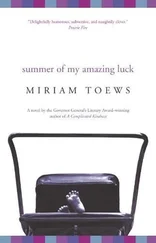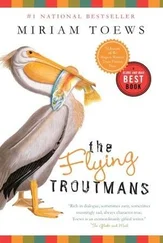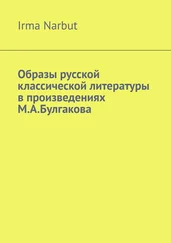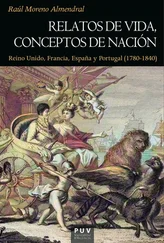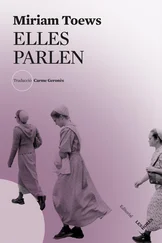We shook hands and said goodbye.

When I got back to the tarp Aggie and Ximena were gone. I woke up Noehmi and Dupont and asked them if they knew where my sisters were and they said no, they hadn’t noticed them leave. I stood next to Noehmi and Dupont, who were rubbing their eyes and clearing their throats, and looked in every direction for as far as I could see. It was dark so I saw very little.
We’ll help you find them, said Noehmi. She told Dupont to get up and find his flashlight.
Do you have a flashlight? I asked him.
No, said Dupont. She always expects little miracles of me.
Let’s go, man, said Noehmi. Why is this ribbon tied around my wrist?
But then she forgets about them, he said.
Noehmi and Dupont walked off in one direction, it might have been east, and I went north, or maybe south. The point is we split up and began our search. I could tell you all the things I was feeling but there is one picture that sums it up and that’s the one of that skinny guy running across a bridge holding his face and being chased by a mushroom cloud. My sister Katie had that picture tacked to her bedroom wall and she liked to make word bubbles for the skinny man that had to do with reasons for his panic. One day she ripped it off her wall and stuffed it into her garbage can. She said it was ubiquitous.
It’s really true that a person can become rigid with fear. I felt my limbs stiffen as I walked across the Zócalo calling out Aggie’s name and imagining one horror after another, each scenario worse than the one before it. I prayed. I made a deal with God, wondering how I could have prevented all of this from happening, and hating myself. I punched myself in the side of my head. Think, Irma, I said. I stopped walking and stood still in the centre of the Zócalo and all of the protesters, sleeping and awake. I scanned the crowd, looking for one white-blond head that would pop out of the darkness like a piece of toast. Okay, I said to myself, how can this even be happening? How can I have lost all of my sisters? This is without a doubt the shittiest moment in the history of my life. Then the words history of my life started to carve some kind of repetitive groove in my brain. I touched the space between my eyes, the source of light, my internal … whatever. What had Marijke told me? The history of my life, I said. The source of my internal … light. This was stupid. And then I knew.
I ran towards the National Palace at the far end of the Zócalo and found Aggie leaning against the door, asleep, with Ximena in her arms. I woke her up and hugged them both. Aggie hugged me back. We stayed that way for a long time. And then I asked her when the doors opened and Aggie said she didn’t know but if we waited there we’d be the first ones in when they did open.
I didn’t know where you were, said Aggie. I woke up and you were gone. I freaked out.
I’m sorry, I said.
Where did you go? she said.
I went to find a phone, I said.
Why? said Aggie. Who would you call?
I didn’t call anybody, I said.
Here, said Aggie, can you hold her? My arms are killing me.
I took Ximena and stuffed her inside my sweatshirt. I rubbed her back a bit and hoped she wouldn’t wake up for a while. I needed to sleep.
A couple of hours later the doors to the National Palace opened up and Aggie went inside so that she could stare at her mural. I had managed to find Noehmi and Dupont in the meantime to tell them they could stop looking and we had agreed to have breakfast together on the tarp when Aggie was finished looking at art. I waited outside with Ximena and gave her a bottle. We sat in the sunshine and she looked at me while she drank and I scanned the crowds and looked at her every once in a while too and smiled and told her she was holding up well. Are you a little lamb? I asked her. I tried to shield her eyes from the sun. Are you a warrior? I said. I told her I’d find us a real home that day. Somewhere, you know, out there. In the city. This one. It feels good to make plans with a baby. They seem a little more flexible than the plans we make with people who remember making them.
We all ate a delicious breakfast of eggs and peppers and avocados together in the sunshine on the tarp. Another day of protest had arrived, we had survived the night, and it was time for the three of us to get organized.
Where do you want to go? said Noehmi.
I don’t know exactly, I said.
What kind of job would you like to have?
I’m not sure, I said. Anything, I guess.
Do you have enough money for one month’s rent? said Noehmi.
I’m not sure, I said. We ate our eggs and I silently critiqued my organizational skills. There were lists that I needed to make.
Do you have a job? I asked Noehmi.
We’re students, said Noehmi. Most of us still live with our parents.
What are you students of? I said.
Art, said Noehmi. Politics. History. Cinematography. Dupont is studying madness in film.
Me and Irma work in the movie industry, said Aggie.
We do not work in the movie industry, I said. We helped out on one movie in Chihuahua.
What movie? said Dupont.
I think it’s going to be called Campo Siete , I said.
Who’s making it? said Dupont.
Diego Nolasco, I said.
Dupont stopped chewing and looked at me. Really? he said.
Yeah, I said. Do you know him?
Are you serious? said Dupont. You were working for Diego Nolasco?
Yeah, I said. Just as a translator.
I helped carry things, said Aggie.
After that Dupont talked for a long time about Diego’s other movies and Aggie and I explained how it was that we had worked for him and Dupont found it all kind of hard to believe but I think we finally convinced him that it was true. Dupont said he sort of knew someone from his university who almost got a job working for Diego and I asked him if that person’s name was Wilson and he said no, it was Roberto. He wanted to know if we were still in touch with Diego and I said no, it had ended a bit awkwardly. He’s a genius, said Dupont. Yes, I said. Noehmi gave us the address of her sister’s husband’s brother who owns a bed and breakfast in Condesa, a different part of Mexico City with a huge park in the centre of it. You could ask him for a job, she said. She said she’d call him and ask him too. You’d be perfect because you can speak English to the tourists and you’d probably be able to carry Ximena around with you while you clean rooms or whatever.
We’ll come and visit you, said Noehmi. She gave me another piece of paper with her phone number and address. She lived in a place called Tacubaya, not far from Condesa. She had drawn a picture next to her address for Aggie. It was of the National Palace with me, Ximena and herself standing in front of it. Where’s Aggie? she had written in a word bubble coming from my mouth. In there! she had written in another word bubble coming from her mouth.
She said she wanted me to have her copy of ‖ And Other Problems in Waking Life . But you haven’t finished reading it yet, I said. She said I could read it in the meantime and she’d start reading another book called The Outsider , which was written by a Frenchman named Albert Camus. He died in a car crash, she said. And the novel he was working on went flying all over the road.
Do you know Nausea ? she asked me.
Well, I said.
Jean-Paul Sartre? she said.
No, I said.
He was married to Simone de Beauvoir? she said. I’ll bet you’ve heard of her.
No, I said.
Well, said Noehmi, she was this really intense woman. She had a passionate affair with an American writer named Nelson Algren. He’s one of my favourite writers. He was mostly a recluse and then one day he decided he should smarten up and celebrate something and he decided to have a party at his place but just before the guests were due to arrive he fell down dead in his house.
Читать дальше


